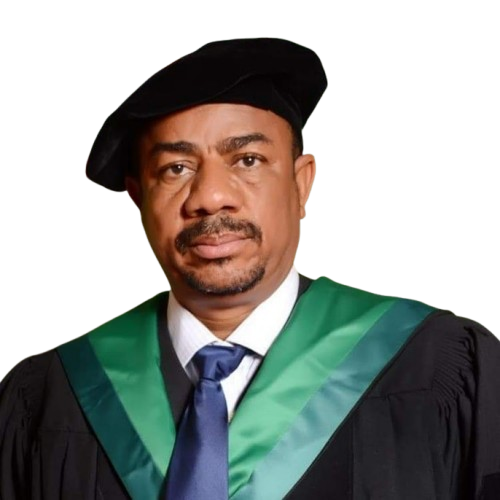DOCTOR OF PHILOSOPHY (Ph.D.) IN THERIOGENOLOGY
PHILOSOPHY
Theriogenology can serve as a medium that could potentially alleviate numerous problems facing this country, through improved livestock productivity, enhanced breeding, genetic manipulation, and reduction of productive diseases in domestic and wild animals. The programme will provide advanced training in research in various methods of improving reproduction, reproduction techniques and other methods of controlling and manipulating reproduction like Artificial Insemination, Embryo Transfer, Embryo Micromanipulation Techniques. In Vitro Fertilization, Cloning and Stem Cell Research. The Theriogenology unit is, essentially responsible for teaching and research in courses related to Diagnosis, Treatment, Control and Prevention of Reproductive Disease in Animals. There are a lot of demand for post gradate trainings in Theriogenology in this University. The programme will enhance production of graduates with advanced training and skills in methods of improved animal reproduction, animal production, and special techniques that can improve and control reproduction for maximum and high quality yield in our animals. Advanced training in Theriogenology provides specialist training in methods of production of quality genetically improved animals and consequently high quality meat and milk production through specialized techniques.
AIM AND OBJECTIVES
Aim: The PhD programme in Theriogenology is designed to train advanced level specialists in all areas of Theriogenology (reproduction).
The objectives of the programme are to:-
- Produce professional personnel with advanced knowledge in various areas of Reproduction.
- Produce experts in artificial insemination and embryo manipulation techniques.
- Train candidates in the conduct of basic and applied researches in chosen areas of reproduction.
ADMISSION REQUIREMENTS:
- Five ‘O’ Level credits passes in English Language, Mathematics, Chemistry, Physics and Biology.
- Doctor of Veterinary Medicine Degree of Usmanu Danfodiyo University or any other recognized Institution.
- MVsc or Msc Degree in Theriogenology of Usmanu Danfodiyo University, Sokoto or any recognized Institution.
- Master of philosophy (MPhil) Degree in Theriogenology of Usmanu Danfodiyo University, Sokoto or any other recognized Institution.
- Candidates must satisfy the University requirement for Matriculation.
- Any other conditions required by the Board of the Postgraduate School and the University Senate.
MODE OF STUDY: Shall be full time or part-time. Through research to be embodied in a Thesis.
DURATION: The programme shall last for a minimum of 36 and a maximum of 60 calendar months for full time, and a minimum of 48 and a maximum of 84 calendar months for part-time.
TUITION FEES: As determined by the University from time to time.
CAREER OPPORTUNITIES
Employed in any outfit that deals with Animal reproduction, Animal production, Animal health, Teaching and research institutions, public or private farms. They could also be employed in Artificial Insemination Centres or companies, Embryo transfer centres or companies. Graduates could also be self-employed in animal production, Insemination services and most biotechnology establishment.
AREAS OF SPECIALISATION
- Small Animal Reproduction
- Large Animal Reproduction
- Avian Reproduction
- Wild life and Exotic Animals Reproduction
- Reproductive Physiology
- Gynaecology
- Andrology
GRADUATION REQUIREMENTS
- Candidates must present a proposal defense seminar between 18 and 24 months of first registration for full time and 24 and 36 months for part time. Failure to do this will result in withdrawal.
- Present 3 seminars at most one per semester
- Register and pass two units of Information and Communication Technology course and Two (2) units of Management and Enterpreneural studies, if not taken at a lower Postgraduate program.
- Defend a research thesis before a panel of Internal and External Examiners and this shall be graded.
LIST OF COURSES
| S/N | COURSE CODE | COURSE TITLE | UNITS |
| 1. | FVM 901 | Computer Application in Veterinary Research | 2(1+1) |
| 2. | FVM 902 | Management and Enterpreneura Studies | 2(2+0) |

